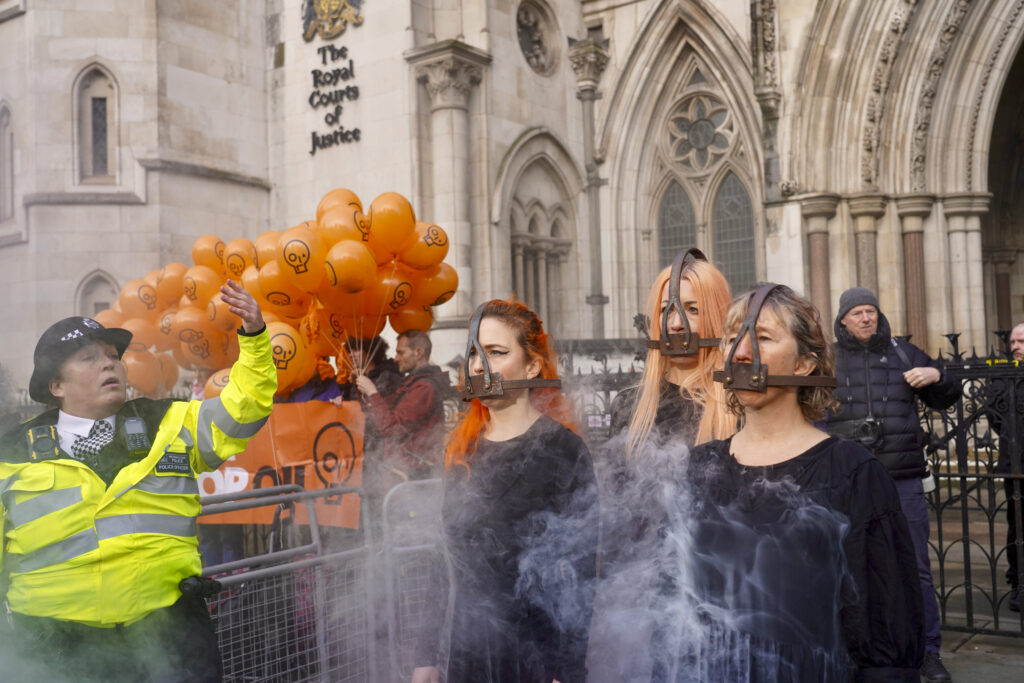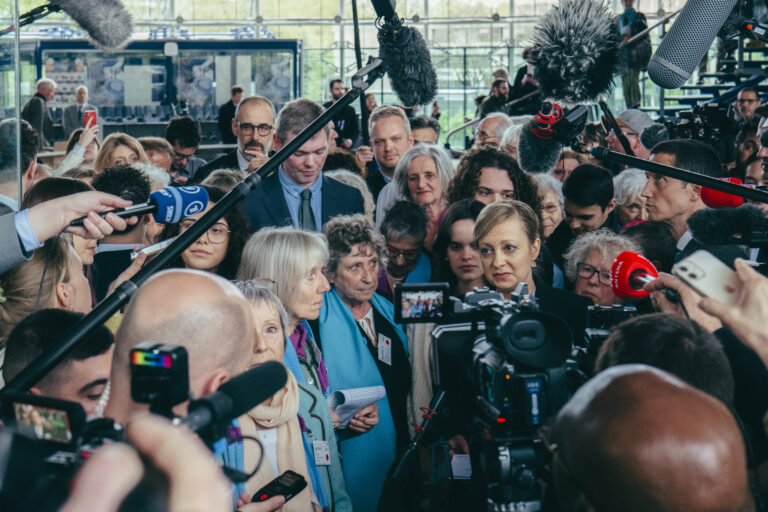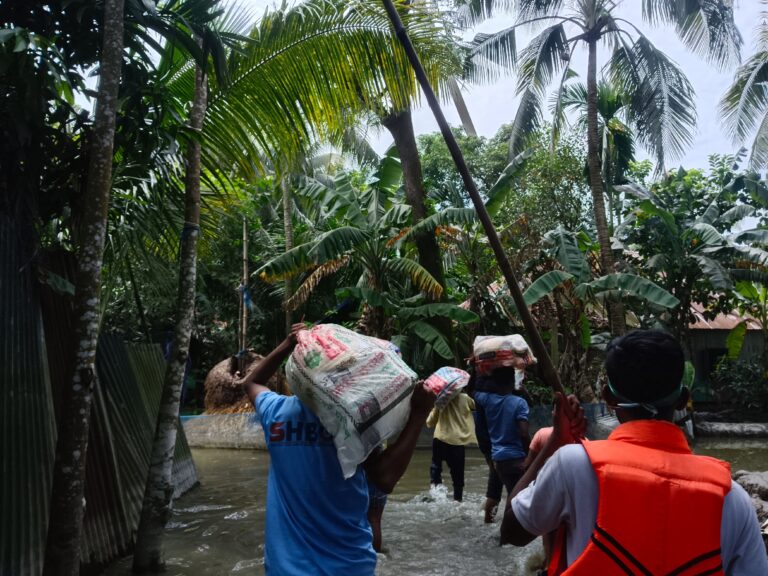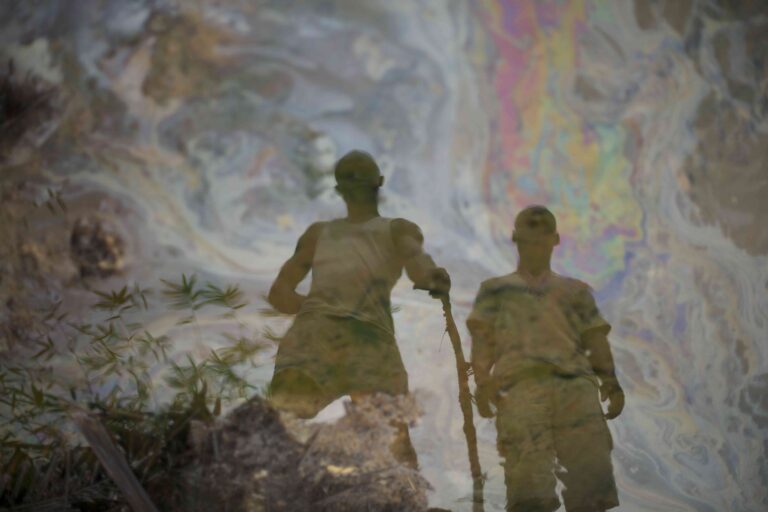Art historians and Heinz fans breathed a collective sigh of relief in April. Just Stop Oil (JSO), the climate activism group responsible for chucking tomato soup over Van Gogh’s Sunflowers, hung up their fluorescent orange vests and declared their demands met. The government has agreed not to issue new oil or gas licenses in the North Sea. JSO’s work is done.
At least, that’s what the activist group said publicly. Privately, the BBC reported, activists admitted that new anti-protest laws have made it impossible for JSO to continue.
Activist and spokesperson James Skeet says that claim is “utter crap”.
“We’re in an increasingly authoritarian state that is rolling out increasingly draconian legislation, so I’m not gonna deny that it’s a challenge for us,” he says.
“But our position has always been that whatever the state throws at us is kind of immaterial when you look at the disruptions that are coming down the line as a result of climate breakdown.”
The “draconian legislation” Skeet refers to comprises of two Acts passed by the previous Conservative government.
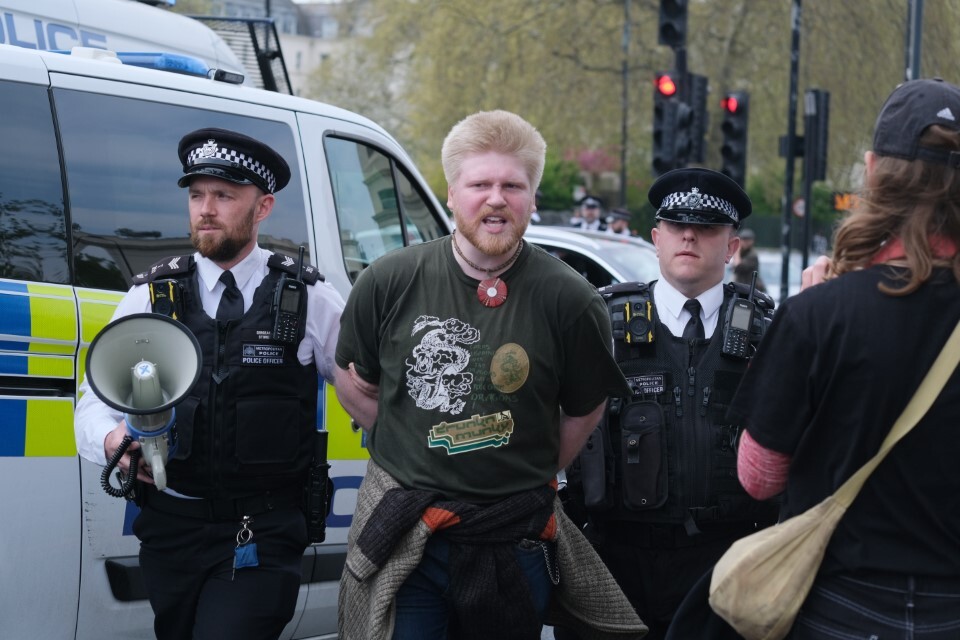
The first, the Police, Crime, Sentencing and Courts Act 2022 criminalised causing (or planning to cause) “serious annoyance or inconvenience” by creating the statutory offence of “public nuisance”, for which many protestors have since been arrested.
The longest sentence to date was given to Just Stop Oil activist Roger Hallam, who is serving five years in prison for blocking the M25 motorway in 2022.
The second, the Public Order Act 2023, introduced new offences that targeted trademark tactics used in disruptive action, such as locking on, in which activists attach themselves to buildings or other large structures. Punishment for these offences ranges from a fine to three years in prison.
“When they’re dishing out five-year sentences for being involved in a traffic jam, that’s a net positive for us,” says Skeet. “It elicits a discussion in society around whether that sort of punishment fits the crime.”
The increased threat of arrest and conviction posed by these new laws is, however, having the opposite effect to what the government intended – at least among more radical activists.
Once they put us in prison, we know what prison is like, and we’re no longer scared of prison
Chiara Sarti, Youth Demand
Rather than disbanding, Skeet says that JSO are using the momentum from their win to “mobilise for the next big thing”.
Meanwhile, JSO’s younger, tech-savvier sibling, Youth Demand, have just concluded a month of disruptive action across London in April, organised mainly through social media. The campaign followed a police raid on a meeting in the Westminster Quaker House, which made national headlines and resulted in the arrests of five activists (including a journalist from The Offset, who escaped custody unscathed).
The youth-led climate and pro-Palestine activists are equally unfazed by longer prison sentences and heftier fines.
“Any of these consequences, such as arrest and even prison time, are absolutely in no way comparable to the consequences of the evil that the people in charge of this country are perpetrating,” spokesperson Chiara Sarti says. By “evil”, Sarti is referring to Youth Demand’s main campaign issues: the British government’s investment in the fossil fuel industry and its arms sales to Israel.
Like Skeet, Sarti believes the crackdown on non-violent protest movements will come back to bite them.
“Once they start arresting everyone, then we all know what arrest is like, and we’re no longer scared of arrests. Once they put us in prison, we know what prison is like, and we’re no longer scared of prison.”
While JSO and Youth Demand steamroll ahead, other established activist groups are taking a more pragmatic approach.
Protests used to be something that we just did, whereas now we’re actually having to campaign for that right, which we’ve never had to do before
Kai Tabacek, Greenpeace UK
Greenpeace spokesperson Kai Tabacek says the organisation supports the right of other groups to carry out disruptive action, but what’s most important is the fight for the right to protest.
“Protests used to be something that we just did, whereas now we’re actually having to campaign for that right, which we’ve never had to do before.”
Greenpeace are planning a nationwide campaign in support of this right, and are also lobbying Parliament to amend the Crime and Policing Bill. If approved, the bill would permit the deportation of any foreign national on a temporary visa who is arrested at a protest – a move that bears a Trumpian resemblance to recent visa revocations of international student activists on US university campuses.
Tabacek says strength will lie in numbers: “We’re trying to work with more diverse groups than we ever have before – groups like Amnesty, Liberty, Human Rights Watch, as well as environmental groups across the spectrum.”
Oscar Berglund, an expert in civil disobedience at the University of Bristol, has a more pessimistic view of the future of climate activism.
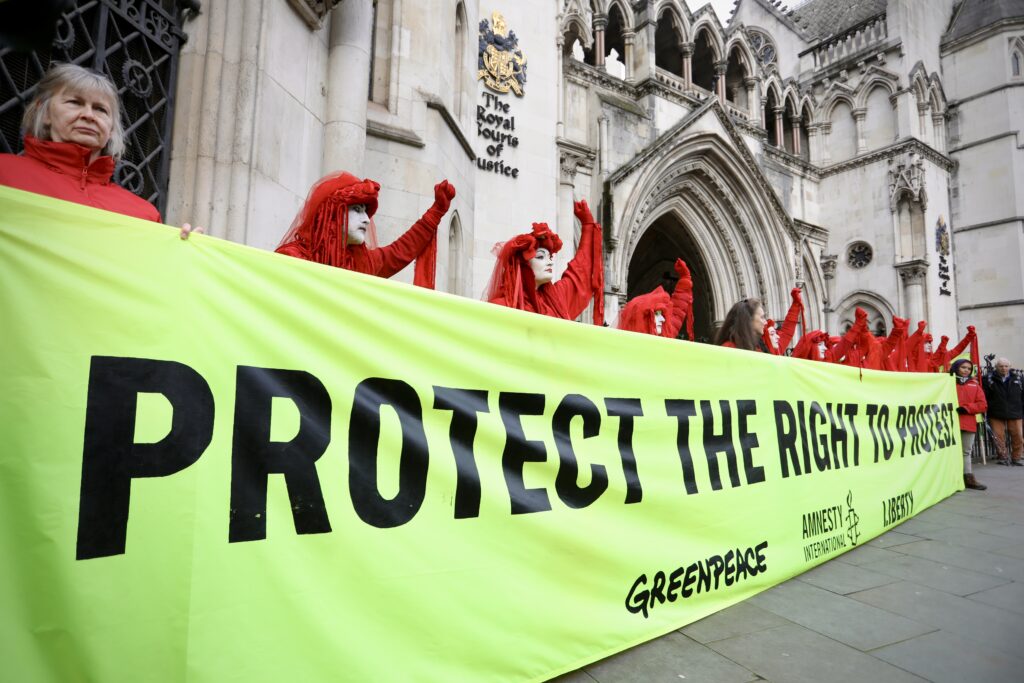
“I don’t think the kind of disruptive activism that Just Stop Oil has done – the more high-profile type, which is very focused on media attention-seeking – is viable anymore.”
“That was a type of protest that came about in a context where people could do that without major legal consequences. And now they have major legal consequences.”
Berglund doesn’t think this is a bad thing; he argues that JSO’s controversial tactics likely discouraged some from joining the climate movement.
“If you are doing things that are broadly seen as legitimate, then you get harder to be cracked down upon.”
“That became some of the problem for JSO, because what they did was so hated by the majority that it was very easy for the police to get away with cracking down on them.”
“The combination of unpopularity, and policing, and changes in the law makes it very difficult for that kind of group sustain itself.”
Whatever the future holds for activists that follow in the footprints of JSO, one thing is clear: climate groups must now balance their battle to save the planet with fighting for the right to throw punches (or soup) in the first place.

